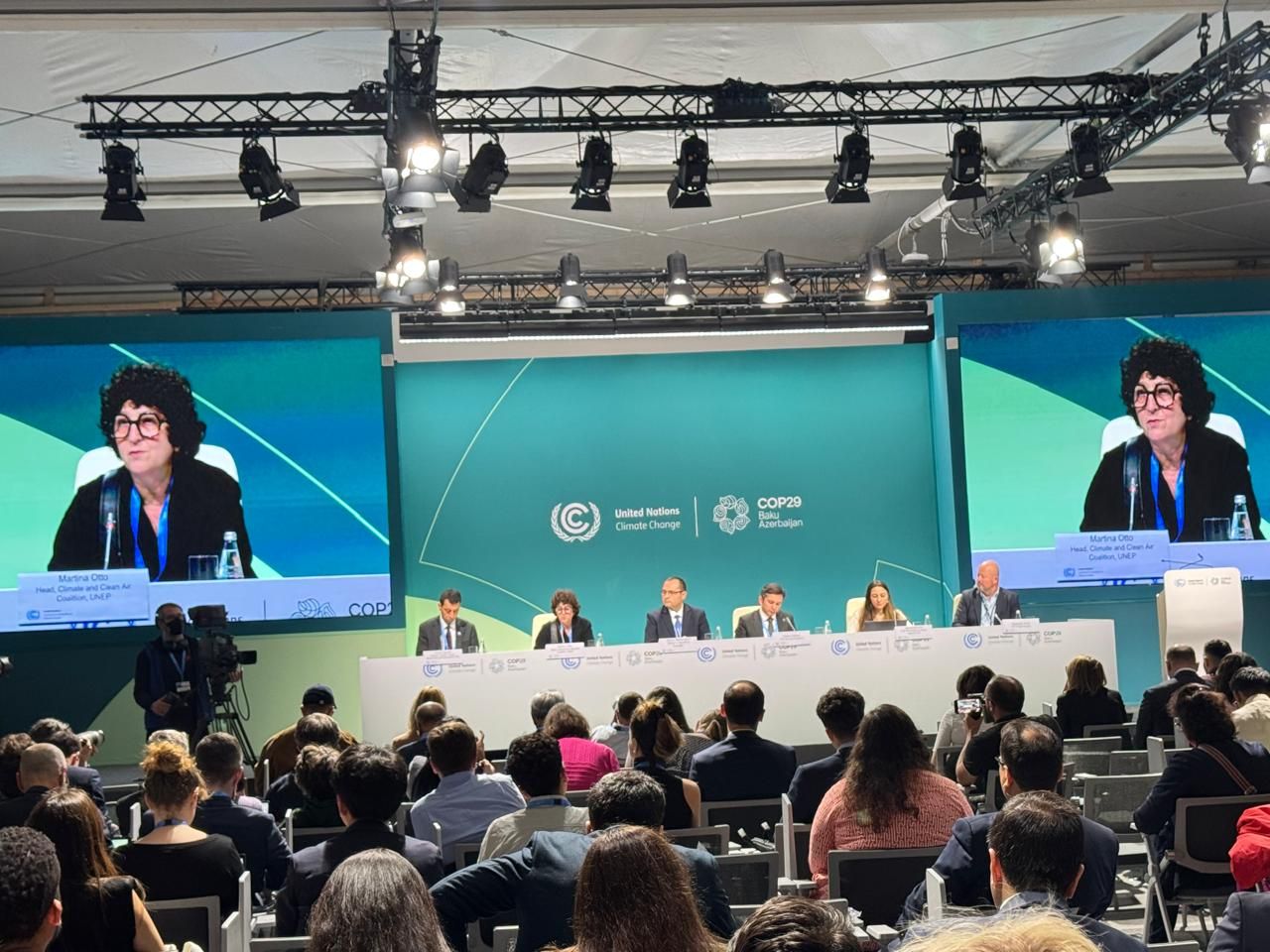UNEP’s Otto backs COP29 Declaration on reducing methane emissions from organic waste as key climate action

At the COP29 Presidency press conference held today, Martina Otto, Head of the Climate and Clean Air Coalition (CCAC) at the United Nations Environment Programme Finance Initiative (UNEP), highlighted the critical importance of reducing methane emissions as a key strategy to address climate change, Azernews reports.
Speaking on the framework of Food, Agriculture, and Water Day, Otto emphasized that cutting methane emissions this decade is essential to slowing the pace of global warming and mitigating the climate crisis.
Otto underscored the significant role of the Climate and Clean Air Coalition, which is convened by the United Nations Environment Programme (UNEP) and includes over 180 countries and international organizations. The Coalition supports the Global Methane Pledge, a commitment by countries to reduce methane emissions by 30% from 2020 levels by 2030. Otto also expressed her support for the COP29 Presidency's declaration on reducing methane emissions from organic waste, calling it a crucial step in tackling this urgent issue.
"Methane is a super-pollutant with a global warming potential much higher than carbon dioxide, and because it has a short lifespan in the atmosphere, cutting methane emissions now can have an immediate impact on near-term warming," Otto explained. She stressed that organic waste, which accounts for 20% of methane emissions, presents a particularly valuable opportunity for action.
Noting the environmental and economic benefits of addressing methane from organic waste, Otto pointed out that not only can methane be captured as an energy resource, but organic waste can also be repurposed to provide protein and other valuable materials. Furthermore, reducing methane emissions from food waste helps prevent the loss of resources that could otherwise be used to feed people, rather than fueling climate change.
The UNEP official called on all nations to integrate methane reduction measures into their Nationally Determined Contributions (NDCs) under the Paris Agreement. NDCs, which represent countries' climate action plans, are essential for ensuring that financial resources and ambitious targets align to address the methane challenge.
"Investing in reducing methane emissions is investing in a more sustainable and resilient future," Otto said. "The CCAC is already supporting over 30 countries in this regard, and we are ready to expand our efforts further."
Here we are to serve you with news right now. It does not cost much, but worth your attention.
Choose to support open, independent, quality journalism and subscribe on a monthly basis.
By subscribing to our online newspaper, you can have full digital access to all news, analysis, and much more.
You can also follow AzerNEWS on Twitter @AzerNewsAz or Facebook @AzerNewsNewspaper
Thank you!

